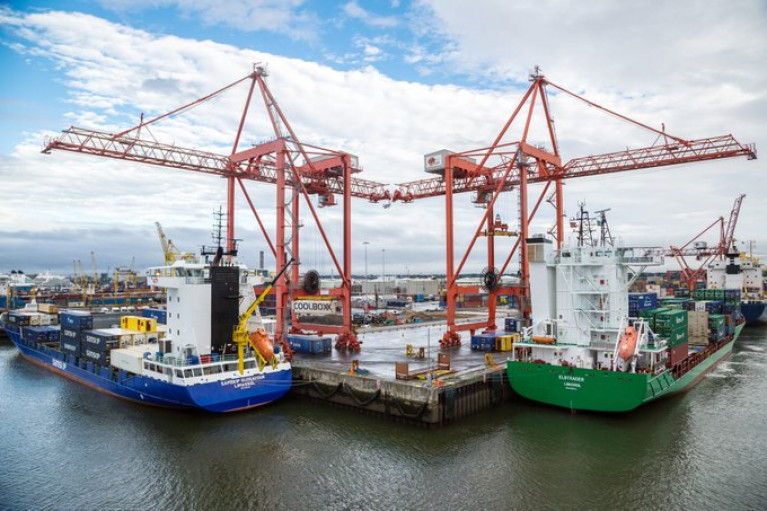Displaying items by tag: Keep Going
Keep European Ports Going - COVID-19 Exit and Recovery Strategy
Europe’s ports have been doing everything possible since the start of the Covid-19 crisis to ensure the continuity of their operations and thus the security of supply.
European ports have activated contingency plans to ensure that ports remain fully operational during this crisis. More than ever, European ports have been demonstrating their role as essential and critical infrastructures playing a crucial role in the supply of necessary goods.
The first and most important priority of European ports is to help overcome the health crisis by ensuring the continuity of their operations and providing citizens, health services and businesses with the goods and materials they need.
However, European ports believe that the EU needs to decide on a recovery strategy on how to overcome the economic crisis Europe is facing.
On their side, European port managing bodies are cooperating as best as they can with their stakeholders and customers to help them solve the challenges they will be facing in the forthcoming months.
As engines of growth, European ports will play an important role in the recovery process. To ensure that ports keep going and can help revamp Europe’s economy in the aftermath of the crisis, ESPO proposes the following:
European ports, their stakeholders and their customers must, when and where needed, be able to benefit from immediate relief measures developed at both the EU and national levels. This will help the port ecosystem to bridge the temporary lockdown and impact of some limited or non-functioning port stakeholders. This temporary support will enable European ports and related industries to catch up as swiftly as possible once the confinement measures are lifted. During past crises, ports have proven to be a very resilient sector, able to rebound rapidly. An important condition for such a recovery is to ensure the short term financial viability of the maritime industry and the most affected businesses in the port. All European ports should be considered for such measures, regardless of their TEN-T status.
European ports ask EU policy makers to strengthen the existing support and financial instruments for infrastructure projects in ports, in particular CEF, and to reinforce investments to allow European ports to play their role in the decarbonisation of Europe’s economy. The current crisis shows the key and critical role of port infrastructure and well-functioning port operations in ensuring the supply of essential goods and material. This is only possible if European ports continue to invest, remain state-of-the-art and further improve their hinterland connectivity. Advancing planned CEF calls could also be a way of boosting investments in ports. Such support should be provided notwithstanding the governance and economic model of ports and should include their respective critical hinterland infrastructures (inland waterways, railways, pipelines, roads).
Ongoing port and transport infrastructure projects which are delayed due to national lockdown measures (in particular the temporary stop of construction works) require flexibility on deadlines and should not fall under the use-it-lose-it principle. Guidance should be further developed and discussed with the relevant project managers involved in ongoing projects, taking away the current uncertainty in their planning.
Ports with important passenger traffic and/or tourism-related activities (notably ferry connections but also cruise) suffer an even more significant drop in activity and must be given special consideration. The recovery of touristic and travel activities risks to take longer in view of the severe travel restrictions within and outside the European Union. Initiatives aiming at restoring the trust in the sustainability, health and safety of maritime passenger traffic and cruise should be developed.
Isabelle Ryckbost, Secretary General of ESPO, comments: “In all European ports it is now really all hands on deck to remain operational and to fulfil their critical and essential role in the supply chain. The contingency plans are working well. I can say that European ports remain fully operational. It is now important to prepare for what comes after the crisis. The port ecosystem is facing serious economic impacts, but ports have proven in the past to be resilient. In order to catch up quickly once the health crisis is under control, and to play their role as engines of growth in Europe’s economic recovery, it is important that ports and the affected businesses in the port are supported when and where needed. The support must help in bridging this period of none or reduced economic activity. It is also important that port and transport infrastructure projects and investments can be pursued as planned and if possible even reinforced”.
























































